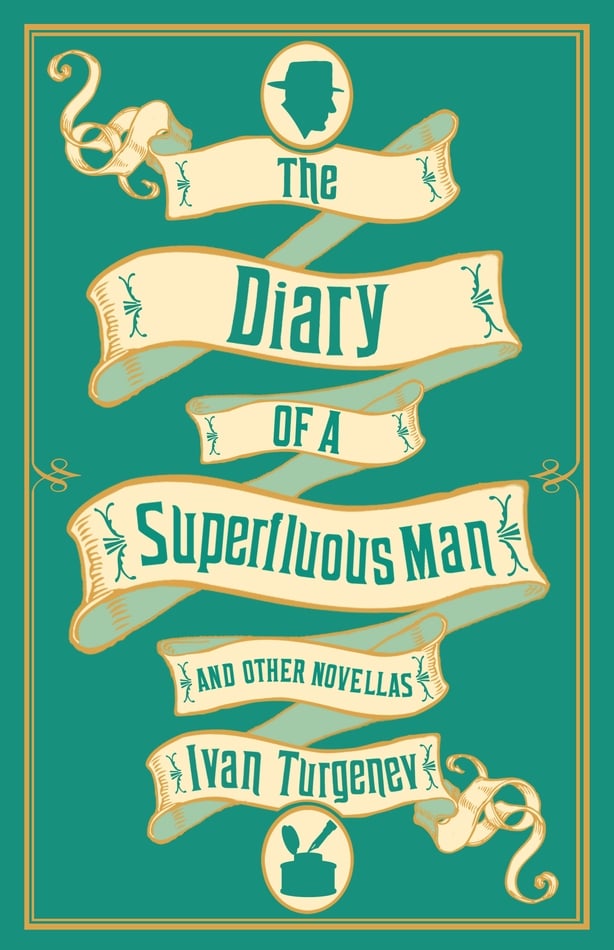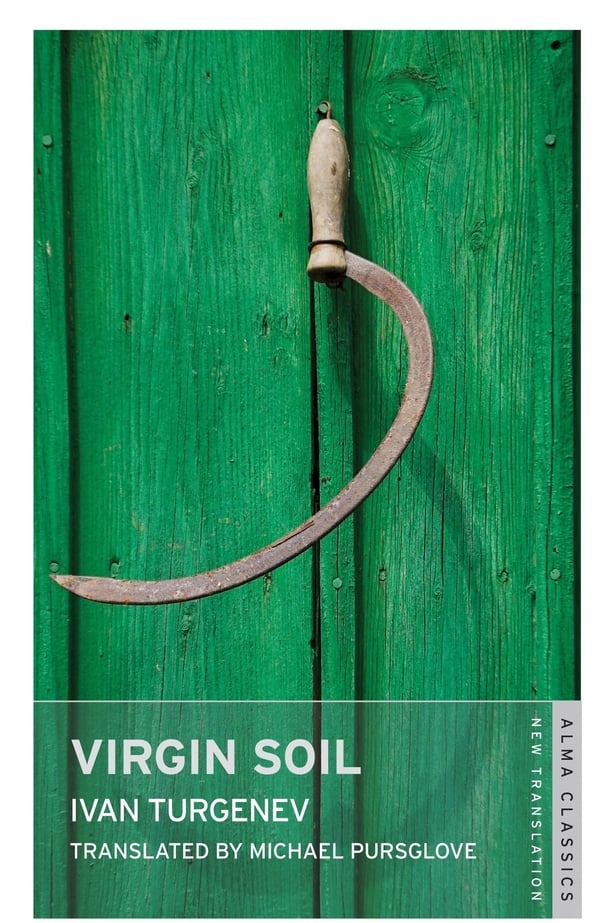"Turgenev to me is the greatest writer there ever was, " declared Ernest Hemingway of the great Russian writer, Ivan Turgenev (1818-1883) who painted a lyrical but vivid and convincing portrait of Russian society in his many works of fiction.
Turgenev is perhaps best known for Fathers and Children – translated in its Penguin edition as Fathers and Sons – which, when it first appeared in 1862, drew vituperative attacks. The conservative Russian press criticised the author for, as they saw it, celebrating radically politicised young men. The free-thinking press, on the other hand, believed that independent young thinkers, particularly Turgenev's doctor Bazarov character, were the object of caricature in the novel.
Bazarov describes himself in the story as 'a nihilist', a word which passed into common usage in Russian, following its inclusion in the story. The author had not intended 'nihilist' to signify one who believed in nothing but he meant an individual who took nothing on trust and subjected assertion and opinion to rigorous analysis.
Alma Classics publish quite a deal of the works of Turgenev and indeed the works of other Russian authors, including Chekhov, Tolstoy and Pushkin. Their beautifully designed editions include thought-provoking extra material as standard, including in this instance, evocative photographs relating to Turgenev's life.Translator Michael Pursglove provides an illuminating introduction to the three novellas included in the collection and there is a chronologically-arranged biography, along with a concise history of the major works at the rear of the book
The Diary of A Superfluous Man is Turgenev’s first novella, published in 1858, and, like much of Turgenev’s fiction depends upon recognisable characters, recognisable, that is, to Russians of the time, although, of necessity, dimly perceived by us some 160 years later.
We cannot help but read this short masterpiece as a Flaubertian tale of a hesitant, hypersensitive young man named Chulkaturin who believes he is dying, his spirit destroyed by his failure to win a young woman's heart. In the course of his story, he makes a rash decision to challenge the man he believes is his rival to a duel - the consequences do not result in a fatal wounding, Chulkaturin is wounded already. Turgenev is brilliant on the fantasies, petty consolations, false hopes and misunderstandings that beset young people in love. Reading him you recognise all too clearly humankind nakedly exposed, and not just young people either.

Those of us not familiar with the nuances of mid-nineteenth century Russian history will read The Diary of A Superfluous Man as a love story, randomly picked out from from the rich weave of Russian life. However, the superfluous man was an identifiable Russian type who, despite his innate ability to work for the betterment of social conditions was ruined by ennui, inertia, call it what you will.
First Love (1860), another captivating novella included here, is believed to be the most autobiographical of all Turgenev’s fiction. Vladimir, who is in his late teens, falls in love with the 21-year old coquette, Zinaida. She toys for the fun of it with the sensibilities of an array of pathetic suitors. None of these guys stand a chance, but when Volodya pries into exactly who the girl’s true love interest is, it turns out to be his own father, whose silences and enigmatic distance from his son finally makes sense.
Once again, this beautifully-paced tale shows Turgenev to be a sharp observer of human behaviour who can work the right measure of intense feeling into the web of the narrative, which also resembles a diary - we are kept up to date almost on a daily basis of the progress of the young man’s pointless obsession with Zinaida.
Also included here is Asya (1858), an entrancing novella, set in a small village on the Rhine which, unlike most of Turgenev’s tales, contains no implicit social message.
A middle-aged man recalls events which occurred 20 years previously when he was on holiday in Germany. A Russian painter named Gagin on that occasion introduces him to his illegitimate half-sister who promptly falls passionately in love with the narrator. He baulks at marriage and now realises that he has missed the one opportunity in his life to know happiness.
Virgin Soil, Turgenev’s last novel, published in 1877, is also available from Alma Classics. In this story, Turgenev set out to include all his thoughts and feelings about Russia of his time. Yet criticism dogged the always controversial writer once again.
Turgenev was decried for daring to paint a contemporary picture when, the critics claimed, he had been so long out of the country that he could not know the scene with sufficient accuracy. Yet the novel - which was prescient about political developments - became a best-seller in translation in Britain, France and America.
In sum, Ivan Turgenev had something of a pastoral poet's soul, being a lyrical writer, more attuned to the rhythms of nature - the song of the nightingale, the sound of the autumn wind in the trees - perhaps than Tolstoy or Dostoyevsky. Yet, like those writers, Turgenev kept a sharp focus on contemporary themes which he understood intuitively and perspicaciously.








